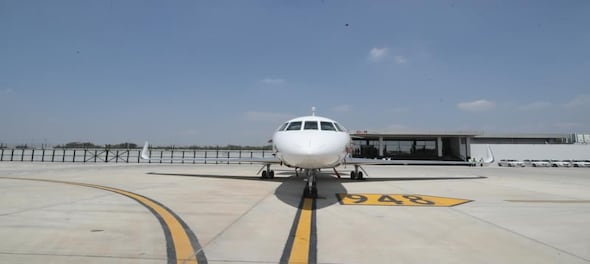
Aviation consultancy firm CAPA India has warned that most Indian airlines currently have a broken business case and hence, the government needs to urgently intervene with key fiscal measures.
The government should look at including aviation turbine fuel (ATF) under the Goods and Service Tax regime, reduce excise on ATF, and IGST (Integrated goods and services tax) on aircraft spares.
"Inclusion of ATF under GST, reduction of excise on ATF most critical, must happen now. Fiscal measures may make potential investors rethink about investing in this very distressed industry," Kapil Kaul, CEO and director, CAPA South Asia (CAPA India), told CNBC-TV18.
Also read
The government should provide a secured credit line to address the immediate cash crisis and promoters need to demonstrate commitment to save their business by guaranteeing asset collateral, Kaul said.
"Government should initiate structural reforms in all the critical areas like building institutional infrastructure, cost competitiveness, regulatory and policy competence," Kaul added.
Airlines will require more than $5 billion of recapitalisation just to survive the impact of the two covid waves, let alone achieve solvency. As a result, India's airlines are unlikely to return to profitability even in FY23, CAPA India said.
Airports are critically placed, which may trigger strategic changes in ownership and they will no longer be able to rely on debt. The drivers of non-aero revenue are likely to experience structural change over the medium term, CAPA India said, adding that they are heading towards historic levels of over-capacity for the next 5 years or more and new policy responses are required for the sector post-covid.
The domestic air traffic has been severely hit since the second wave of COVID-19 and the daily domestic air passenger traffic has remained below the 2-lakh mark since April 13 and below the 1-lakh mark since May 5.
"Fewer people are travelling during this second wave. But with more people getting vaccinated, we are hopeful the domestic aviation figures will again pick up," aviation minister Hardeep Singh Puri wrote on Twitter on May 25.
As per the latest data available, only 59,319 passengers flew on May 23 via 786 flights as against an average of nearly 400,000 passengers and 2900 flights on an average in the pre-COVID period.
(Edited by : Jomy)
First Published: May 27, 2021 7:35 PM IST
Check out our in-depth Market Coverage, Business News & get real-time Stock Market Updates on CNBC-TV18. Also, Watch our channels CNBC-TV18, CNBC Awaaz and CNBC Bajar Live on-the-go!


Supreme Court says it may consider interim bail for Arvind Kejriwal due to ongoing Lok Sabha polls
May 3, 2024 4:57 PM
10% discount on fare on Mumbai Metro lines 2 and 7A on May 20
May 3, 2024 2:40 PM

